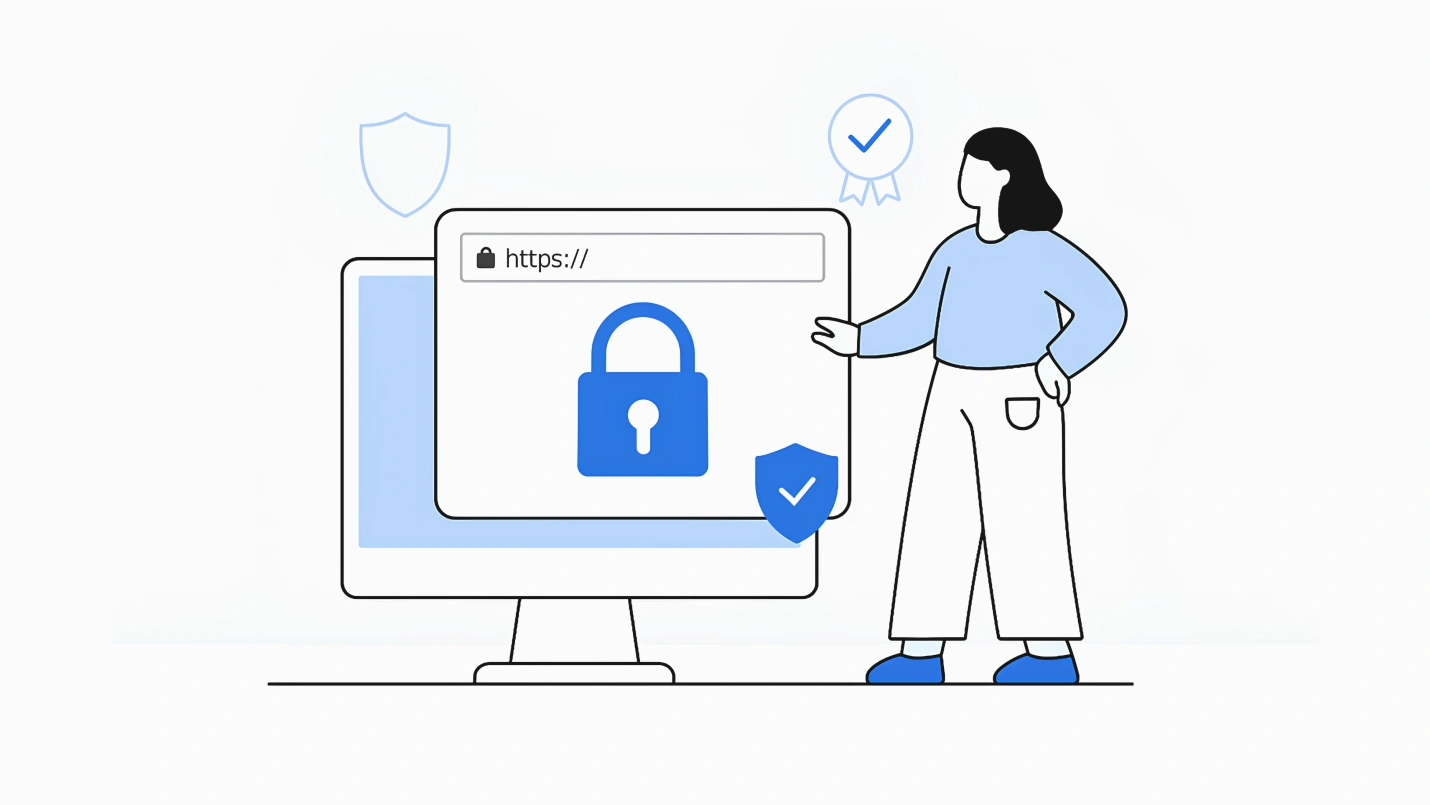Summary: “Dedicated measures for securing your website comes with hosts of benefits such as improved SEO, Improved conversions and reduced customer support tickets and mitigates data breaches, blacklisting and erosion of trust. Read further our detailed guide on why website security matters and how you can improve upon it.”
Cyber attacks are far more common than you might think. A study last year from Cyberedge Group found that 86.2% of organizations fell victim to at least one successful cyberattack, and an Accenture survey found a regular, 125% increase in global incident volume every year for the past few years.
Should you be concerned? Absolutely. Whether you work for an international web development company or a small-to-midsize one, criminals are doing everything they can to tap into your website and steal your data. In fact, Cyber Security Magazine found that a full 43% of data breaches involve small and midsize businesses.
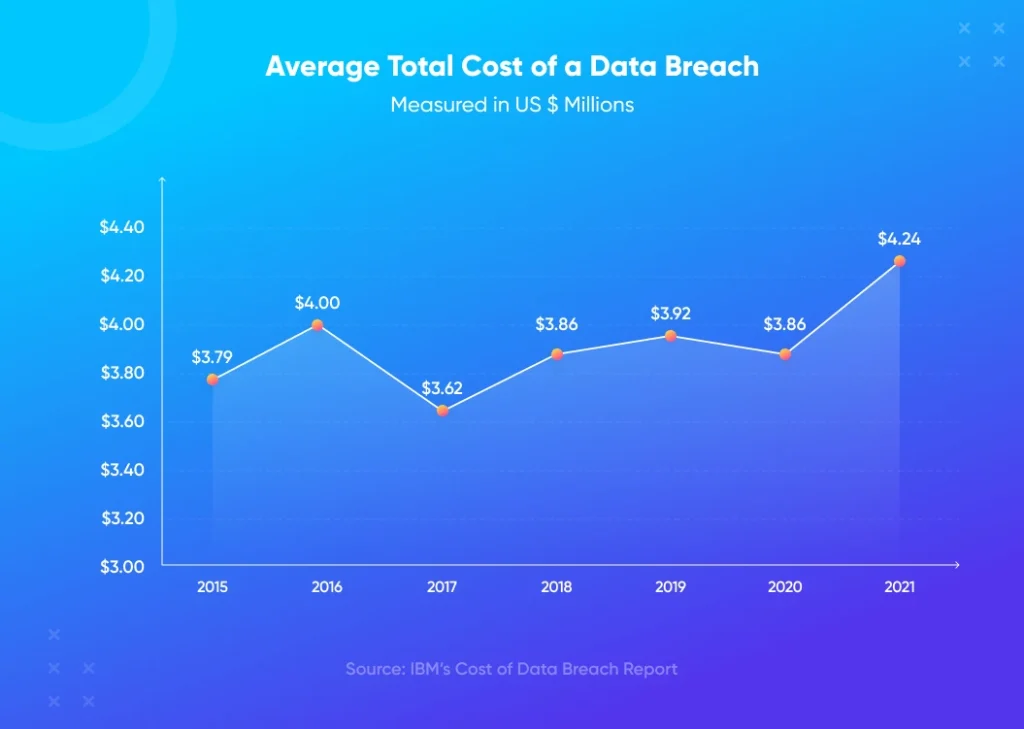
The good news is that there are measures you can take to protect your data and secure your website. That’s what website security is all about.
What Is Website Security?
Website security is the systemic practice of protecting customer-facing websites, apps, and online platforms against cyber attacks. These attacks may involve a variety of hacking attempts, phishing schemes, malware installations, and other dirty tricks.
See the final section of this post to learn more about the many different cyber attacks you may be vulnerable to without a comprehensive plan for site protection.
Why Website Security Matters
If you fail to properly secure your website, you’ll become vulnerable to the following issues, which could bankrupt your business.
- Client data breaches, which could lead to lawsuits
- Customer attrition and loss of revenue over privacy concerns
- Loss of reputation when the news of your data breach goes public
- Website vandalism, which is exactly what it sounds like (but much worse than getting your house covered in toilet paper on Halloween)
- Blacklisting of your domain, which will make customer acquisition and retention very difficult
Website Security Requirements
Just as ancient castles had motes, arrow slits, armed guards, and other tools to protect against invading armies, modern websites have their own tools. Here’s a brief outline of the most powerful and effective types of website security. We also list some popular website security companies that make some of the best website and web application security available today.
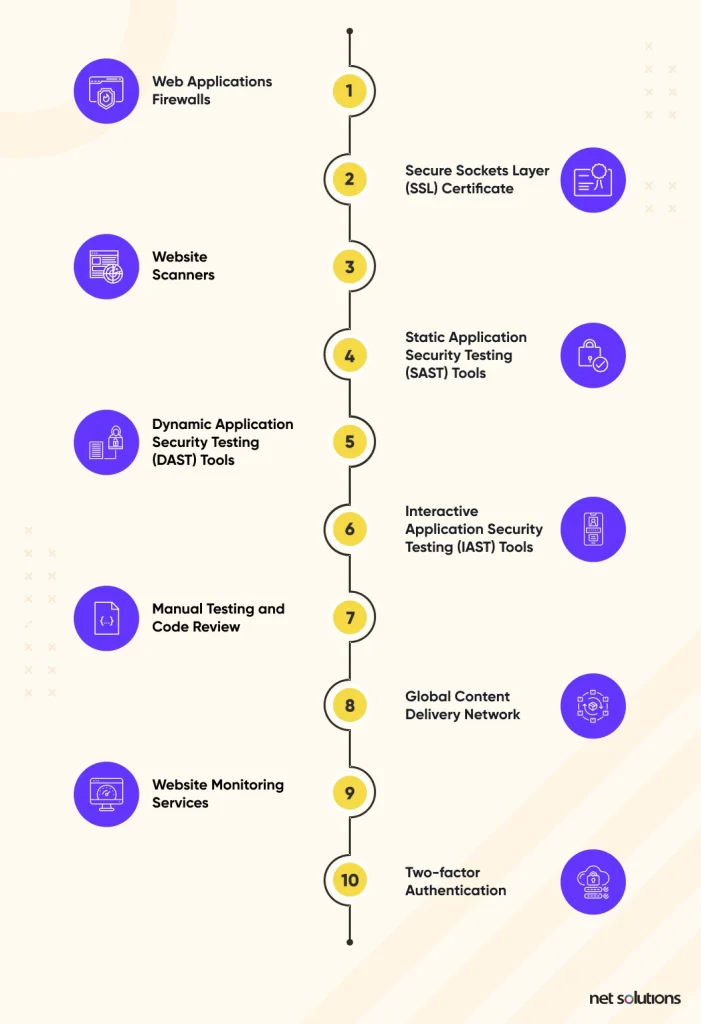
1. Web Application Firewalls
A web application firewall (WAF) creates a digital buffer zone between your website server and the incoming data connection, and that firewall reads all the data that passes through it. Modern WAFs are typically cloud-based, and they’re easy to set up and use. The instant they detect signs of sketchy traffic or bots, they shut that down.
Cloudflare is a popular WAF.
2. Secure Sockets Layer (SSL) Certificate
You’ve probably heard of an SSL certificate, but maybe you’re not entirely sure what it is and why you pay for it every year. Website security certificates verify that you’ve got a system in place to relay each website visitor’s personal information between your site and its database, encrypting all the data that passes through it. This ensures that no outside source can read it as it makes its journey from point A to point B. It also prevents anyone without the proper authority from reading the data stored in your website’s database.
Have you ever logged into a website and noticed text that reads “Not Secure” in the left-hand corner (next to the URL)? That’s a website that doesn’t have an up-to-date SSL certificate. That’s not good for business, since most visitors don’t want to risk paying for anything on an unsecured website.
3. Website Scanners
Website scanners are similar to the anti-viral software on our computer. They do the same thing for your website. Website scanners will scan your site for malware and viruses. They can also ensure you haven’t been blacklisted and that your website isn’t producing errors. Sitecheck is a popular product that performs website security scans.
4. Static Application Security Testing (SAST) Tools
SAST tools analyze your website’s code at fixed points during its development. This helps spot and fix security issues while the team of developers create the site, ensuring you’re providing the best website security to your customers.
5. Dynamic Application Security Testing (DAST) Tools
DAST tools analyze existing code in real-time, spotting security holes as they arise and alerting you so you can fix them.
6. Interactive Application Security Testing (IAST) Tools
IAST tools are software-based tools that deploy agents and sensors to spot security issues in your currently-running code. This is an excellent technique for offering the best website security to your customers.
7. Manual Testing and Code Review
Manual testing and code review tools are used to test mobile apps and websites in terms of how they perform via mobile operating systems.
8. Global Content Delivery Network
A Content Delivery Network (CDN) is a distributed set of servers that function together to facilitate quick content delivery no matter where your clients access your website. That means if your server is located in California, then someone in South Africa doesn’t have to wait for the data to travel halfway around the world to reach them.
Of course, your CDN has to be secure, and Google’s Cloud CDN is a popular service that encrypts your data and keeps it safe.
9. Website Monitoring Services
Website monitoring services do exactly what the name implies—they test and monitor your website in real-time to ensure your users can use them properly and securely.
Logic Monitor is a popular Website Monitoring Service.
10. Two-factor Authentication
You’re probably already familiar with two-factor authentication. This is what websites use when you login from an unknown browser or internet connection and you’re asked to verify your account via email, text, or phone call. This is especially helpful when websites detect unusual traffic, such as a login attempt from outside the user’s home country.
Duo Security is a popular two-factor authentication service.
What Kind of Cyber Attacks Does Website Security Protect Against?
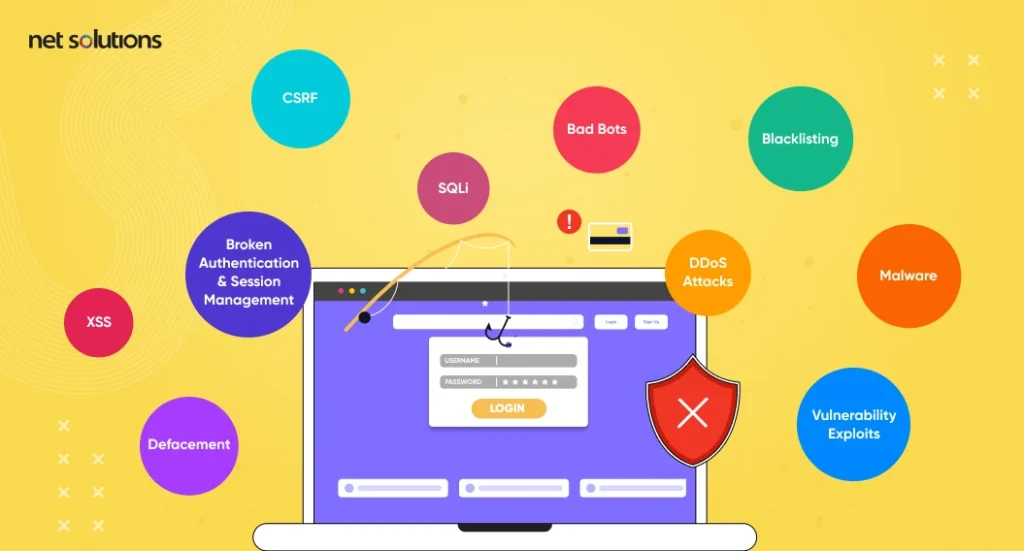
The bad actors in this world are always thinking up ways to steal your customers’ data or, at the very least, create chaos to hurt your business. Here are some common threats that website security protects against.
- Cross-Site Scripting (XSS): This is where hackers inject malicious scripts into your code.
- SQL Injection (SQLi): This is a specific kind of code injection technique that inserts code into your SQL database, which can steal your most sensitive data and even wipe out your database.
- Cross-Site Request Forgery (CSRF): A CSRF attack can force a visitor to unwittingly perform undesired actions on your website or app.
- Broken Authentication & Session Management: When authentication and session management functions have been improperly implemented, it can expose passwords and other sensitive data that hackers exploit.
- Bad Bots: Bots can scrape data from your website to engage in fraudulent activities.
- DDoS attacks: These attacks can make your website slow and cumbersome to use.
- Malware: Malware is designed to wreak all sorts of havoc, including stealing customer data, sending spam from your domain, and giving criminals access to your website.
- Vulnerability exploits: Blackhat hackers work hard to discover weak spots in your website and take advantage of them.
- Defacement: Hackers can replace your content with their own for a variety of purposes.
- Blacklisting: Bad actors can blacklist your website and divert traffic away from it.
Benefits of Securing Your Website
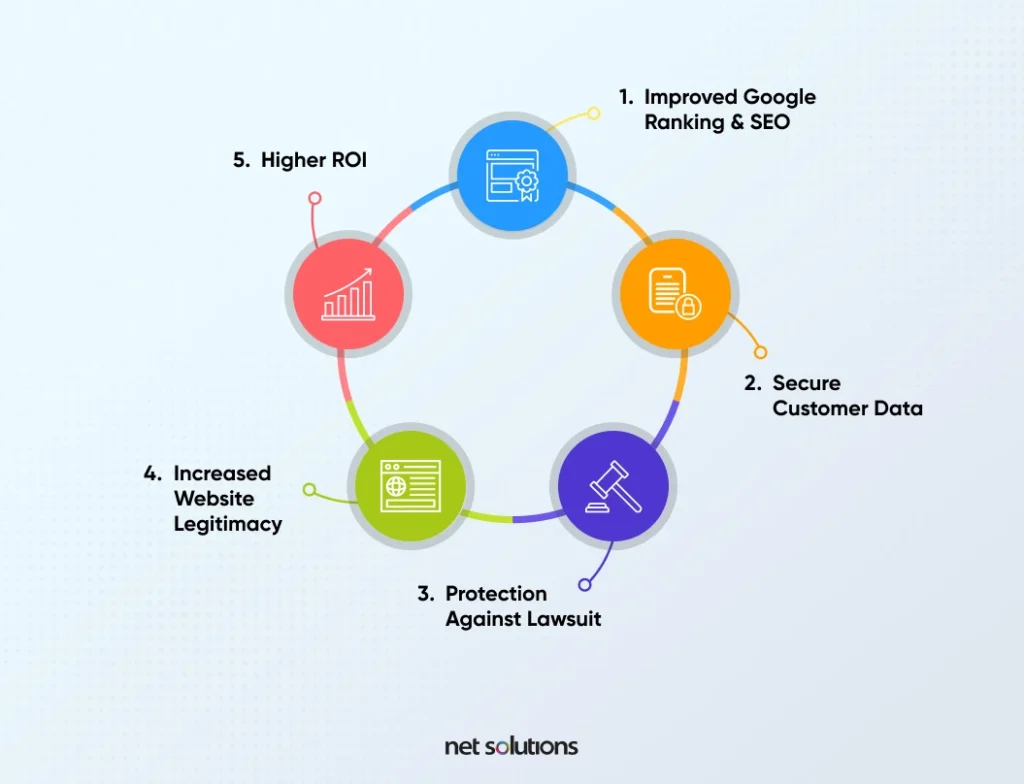
Running your business on a fully secure website has a whole host of benefits, including the following.
- Improved Google Ranking & SEO, since Google gives priority to secure websites that aren’t blacklisted and don’t have a history of exposing their clients’ data.
- Secure customer data, which means happier customers and more business
- Protection against lawsuits that result from website security negligence
- Increased website legitimacy—since visitors trust secure sites that protect their data
- Higher ROI across the board
Protect Your Customers, Protect Your Business
The rise in cyber attacks over the past few years shows no signs of slowing. Here at Net Solutions, we’ve designed thousands of websites and applications, and we’ve seen the criminals become more and more sophisticated with each passing year.
Fortunately, there are plenty of brilliant developers working to thwart the bad actors and keep legitimate companies like yours in business. And you can rest assured we’ll stay up-to-date on all the latest site protection techniques, implementing them in the digital products we design and develop.
Are you concerned about your website security? Run this blog post past your CTO or IT Director and have them conduct a full website security audit. This will ensure you’ve got the latest technology working for you, providing the best website security available today.

